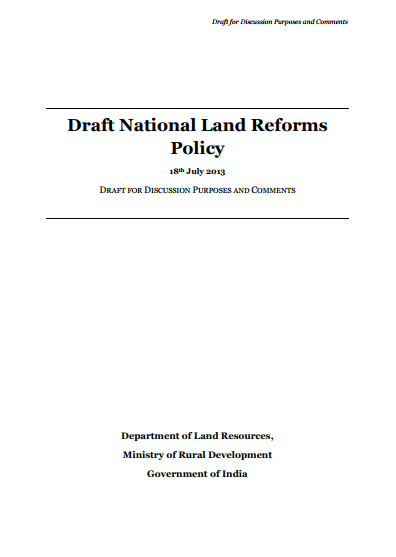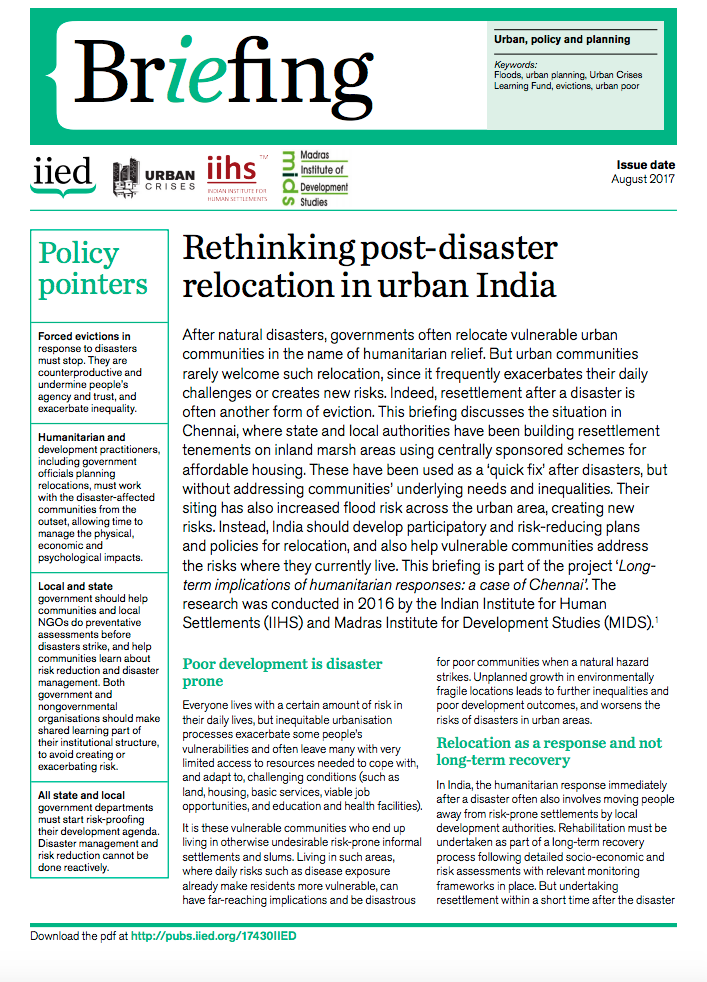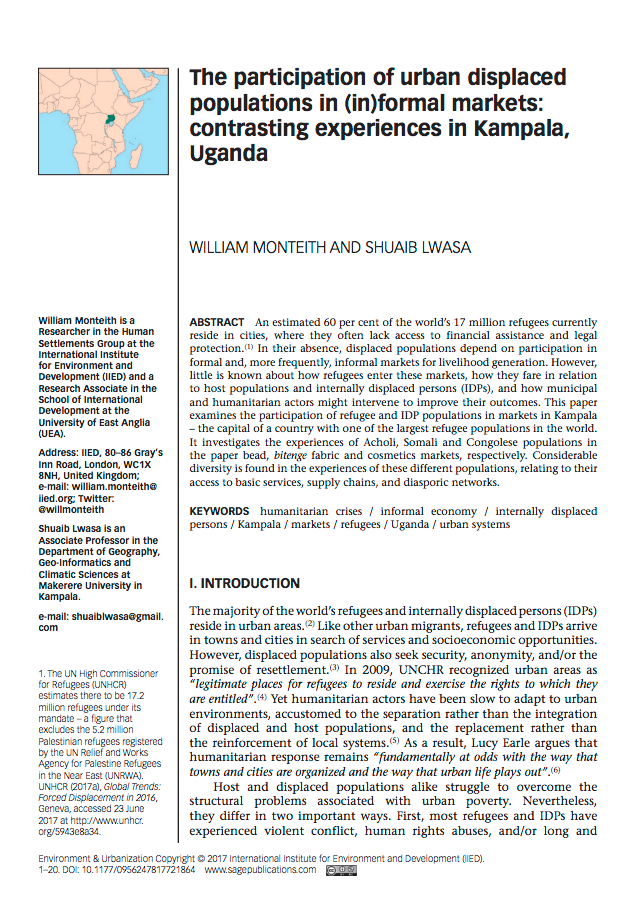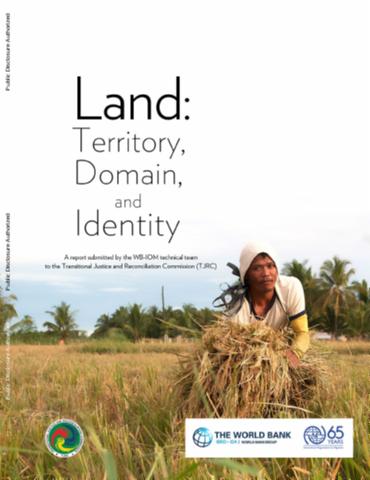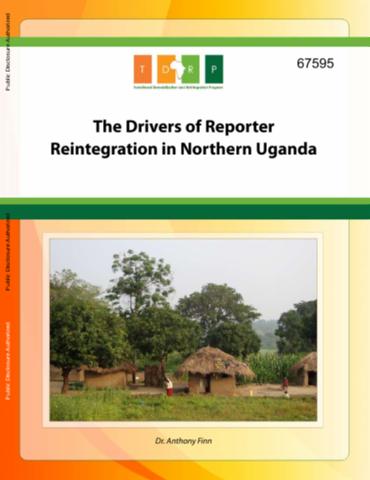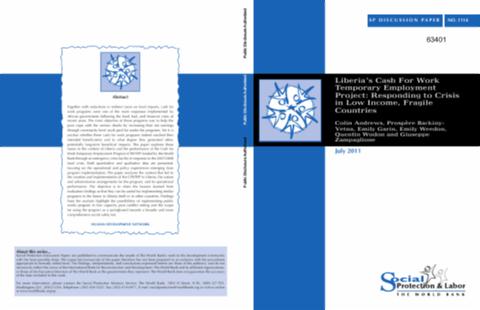Draft National Land Reforms Policy
Chiefly an agricultural society, India has a strong linkage between land and social status of an individual. Nearly 70 % of its population dependent on land, either as farmers or farm laborers and it is imperative to address the issues of land ensuring livelihood, dignity and food security to millions of Indians. Land reform was a major policy initiative in the country in 1950s and early 1960s.

